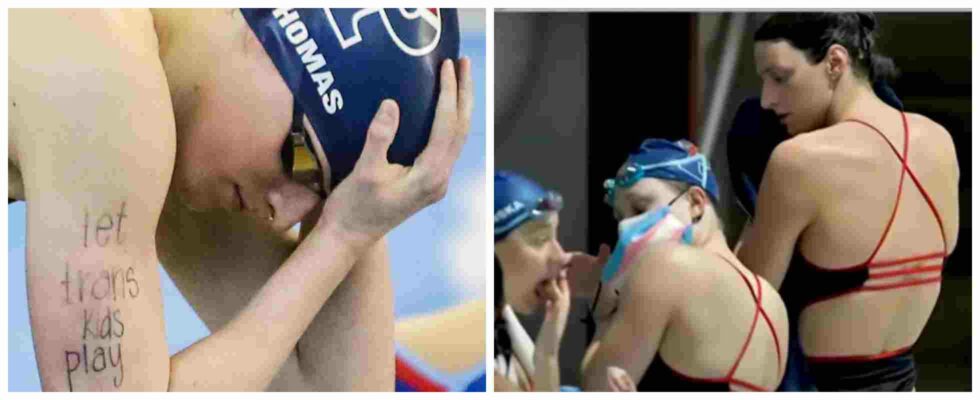Lia Thomas had secured her first NCAA title back in March of this year. She won women’s 500 yard freestyle.
Thomas had been fascinating to watch all season because she was lapping the other competitors. Many pundits slammed her choice to participate in women’s swimming events to start with.
Olympic Gold Medalist Caitlyn Jenner questioned if Thomas was giving it her all in the NCAA winning swim and wanted to have a sit down to discuss Thomas’ motivations.
Caitlyn Jenner was skeptical of the performances saying Thomas took it easy on the women and tried to win by a reasonable margin:
‘Lia Thomas just dominated in the pool, and I’m sure she took it quite easily because she did not want to win by too much,’ the I am Cait star said.
Jenner went on to slam the NCAA for letting this happen:
‘[Thomas’] playing within the rules. What I’ve said from the beginning [are] the rules aren’t tough enough,’ Jenner said of the hot button issue on Fox News. ‘Just being on testosterone depressants for a year or two, whatever the rules are now, they keep changing, obviously, it is not enough.’
Now the World swimming governing body is reacting. This is a relief in light of Thomas actually announcing that she would be looking forward to trying to make it into the next Olympic games.
“Trans people don’t transition for athletics. We transition to be happy and authentic and our true selves.”
“It’s been a goal of mine to swim at Olympic trials for a very long time and I would love to see that through.” Thomas told media.
“Swimming’s world governing body FINA on Sunday voted to restrict the participation of transgender athletes in elite women’s competitions and create a working group to establish an “open” category for them in some events as part of its new policy.” – Reuters reported.
FINA’s decision was made during extraordinary general congress after members heard a report from a transgender task force comprising of leading medical, legal and sports figures.
The new eligibility policy states that transgender athletes are eligible to compete only if “they can establish to FINA’s comfortable satisfaction that they have not experienced any part of male puberty beyond Tanner Stage 2 (of puberty) or before age 12, whichever is later”.
“We have to protect the rights of our athletes to compete, but we also have to protect competitive fairness at our events, especially the women’s category at FINA competitions,” said FINA President Husain Al-Musallam.
“FINA will always welcome every athlete. The creation of an open category will mean that everybody has the opportunity to compete at an elite level. This has not been done before, so FINA will need to lead the way. I want all athletes to feel included in being able to develop ideas during this process.”
The new FINA policy makes it so that only individuals who have androgen insensitivity and don’t undergo male puberty can compete in the women’s division.
Swimmers who have had “male puberty suppressed beginning at Tanner Stage 2 or before age 12, whichever is later, and they have since continuously maintained their testosterone levels in serum (or plasma) below 2.5 nmol/L.”
Athlete Ally, an advocacy group for LGBTQI+ people in sport, condemned FINA’s decision.
“FINA’s new eligibility criteria for transgender athletes and athletes with intersex variations is discriminatory, harmful, unscientific and not in line with the 2021 IOC principles. If we truly want to protect women’s sports, we must include all women,” they said in a post on twitter.
